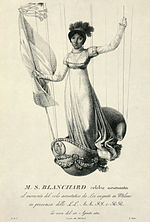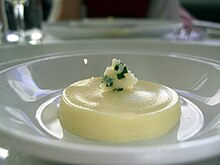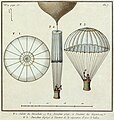Portal:France
| Main Page | Gazetteer |
Welcome to the France Portal!
Bienvenue sur le Portail France !

|

|
 | |
France, officially the French Republic, is a country located primarily in Western Europe. It also includes overseas regions and territories in the Americas and the Atlantic, Pacific and Indian oceans, giving it one of the largest discontiguous exclusive economic zones in the world. Metropolitan France shares borders with Belgium and Luxembourg to the north, Germany to the north east, Switzerland to the east, Italy and Monaco to the south east, Andorra and Spain to the south, and a maritime border with the United Kingdom to the north west. Its metropolitan area extends from the Rhine to the Atlantic Ocean and from the Mediterranean Sea to the English Channel and the North Sea. Its overseas territories include French Guiana in South America, Saint Pierre and Miquelon in the North Atlantic, the French West Indies, and many islands in Oceania and the Indian Ocean. Its eighteen integral regions (five of which are overseas) span a combined area of 643,801 km2 (248,573 sq mi) and have a total population of 68.4 million . France is a unitary semi-presidential republic with its capital in Paris, the country's largest city and main cultural and commercial centre; other major urban areas include Marseille, Lyon, Toulouse, Lille, Bordeaux, Strasbourg, Nantes and Nice.
Metropolitan France was settled during the Iron Age by Celtic tribes known as Gauls before Rome annexed the area in 51 BC, leading to a distinct Gallo-Roman culture. In the Early Middle Ages, the Germanic Franks formed the Kingdom of Francia, which became the heartland of the Carolingian Empire. The Treaty of Verdun of 843 partitioned the empire, with West Francia evolving into the Kingdom of France. In the High Middle Ages, France was a powerful but decentralized feudal kingdom, but from the mid-14th to the mid-15th centuries, France was plunged into a dynastic conflict with England known as the Hundred Years' War. In the 16th century, the French Renaissance saw culture flourish and a French colonial empire rise. Internally, France was dominated by the conflict with the House of Habsburg and the French Wars of Religion between Catholics and Huguenots. France was successful in the Thirty Years' War and further increased its influence during the reign of Louis XIV.
The French Revolution of 1789 overthrew the Ancien Régime and produced the Declaration of the Rights of Man, which expresses the nation's ideals to this day. France reached its political and military zenith in the early 19th century under Napoleon Bonaparte, subjugating part of continental Europe and establishing the First French Empire. The French Revolutionary and Napoleonic Wars significantly shaped the course of European history. The collapse of the empire initiated a period of relative decline, in which France endured the Bourbon Restoration until the founding of the French Second Republic which was succeeded by the Second French Empire upon Napoleon III's takeover. His empire collapsed during the Franco-Prussian War in 1870. This led to the establishment of the Third French Republic Subsequent decades saw a period of economic prosperity and cultural and scientific flourishing known as the Belle Époque. France was one of the major participants of World War I, from which it emerged victorious at great human and economic cost. It was among the Allied powers of World War II, but it surrendered and was occupied by the Axis in 1940. Following its liberation in 1944, the short-lived Fourth Republic was established and later dissolved in the course of the defeat in the Algerian War and Moroccan War of Independence. The current Fifth Republic was formed in 1958 by Charles de Gaulle. Algeria and most French colonies became independent in the 1960s, with the majority retaining close economic and military ties with France.
France retains its centuries-long status as a global centre of art, science, and philosophy. It hosts the third-largest number of UNESCO World Heritage Sites and is the world's leading tourist destination, receiving over 89 million foreign visitors in 2018. France is a developed country with a high nominal per capita income globally and its advanced economy ranks among the largest in the world. It is a great power in global affairs, being one of the five permanent members of the United Nations Security Council and an official nuclear-weapon state. France is a founding and leading member of the European Union and the eurozone, as well as a key member of the Group of Seven, North Atlantic Treaty Organization (NATO), Organisation for Economic Co-operation and Development (OECD), and Francophonie. (Full article...)
Hotel Chevalier is a 2007 short film written and directed by Wes Anderson. Starring Jason Schwartzman and Natalie Portman as former lovers who reunite in a Paris hotel room, the 13-minute film acts as a prologue to Anderson's 2007 feature The Darjeeling Limited. It was shot on location in a Parisian hotel by a small crew and self-financed by Anderson, who initially intended it to be a stand-alone work. Its first showing was at the Venice Film Festival première of the feature film on September 2, 2007, and it made its own debut later that month at Apple Stores in four U.S. cities.
The day after the film's première, it was made freely available from the iTunes Store for one month, during which time it was downloaded more than 500,000 times. The film garnered acclaim from reviewers, who compared it favorably to The Darjeeling Limited and praised its richness, poignancy, and careful construction. (Full article...)Ballooning was a risky business for the pioneers. Blanchard lost consciousness on a few occasions, endured freezing temperatures and almost drowned when her balloon crashed in a marsh. In 1819, she became the first woman to be killed in an aviation accident when, during an exhibition in the Tivoli Gardens in Paris, she launched fireworks that ignited the gas in her balloon. Her craft crashed on the roof of a house and she fell to her death. She is commonly referred to as Madame Blanchard and is also known by many combinations of her maiden and married names.
Selected fare or cuisine –
An amuse-bouche (/əˌmuːzˈbuːʃ/; French: [a.myz.buʃ]) or amuse-gueule (UK: /əˌmuːzˈɡɜːl/, US: /-ˈɡʌl/; French: [a.myz.ɡœl]) is a single, bite-sized hors d'œuvre. Amuse-bouches are different from appetizers in that they are not ordered from a menu by patrons but are served free and according to the chef's selection alone. These are served both to prepare the guest for the meal and to offer a glimpse of the chef's style.
The term is French and literally means "mouth amuser". The plural form may be amuse-bouche or amuse-bouches.
In France, amuse-gueule is traditionally used in conversation and literary writing, while amuse-bouche is not even listed in most dictionaries, being a euphemistic hypercorrection that appeared in the 1980s on restaurant menus and used almost only there. (In French, bouche refers to the human mouth, while gueule means the wider mouth of an animal, e.g. dog, though commonly used for mouth and derogatory only in certain expressions, e.g. "ferme ta gueule".) (Full article...)
Although no precise estimates exist, the number of French soldiers captured by Nazi Germany during the Battle of France between May and June 1940 is generally recognised around 1.8 million, equivalent to around 10 percent of the total adult male population of France at the time. After a brief period of captivity in France, most of the prisoners were deported to Germany. In Germany, prisoners were incarcerated in Stalag or Oflag prison camps, according to rank, but the vast majority were soon transferred to work details (Kommandos) working in German agriculture or industry. Prisoners from the French colonial empire, however, remained in camps in France with poor living conditions as a result of Nazi racial ideologies.
During negotiations for the Armistice of 22 June 1940, the Vichy French government adopted a policy of collaboration in hopes for German concessions allowing repatriation. The Germans nevertheless deferred the return of prisoners until the negotiation of a final peace treaty, which never occurred due to the United Kingdom's refusal to surrender and Germany's defeat in the Battle of Britain. The absence of a large proportion of the male population of France also had important consequences on the position of women in occupied France and charity fundraising on behalf of the prisoners played an important role in French daily life until late in the occupation. Limited repatriation of certain classes of POWs did occur from 1940 and the government was keen to encourage the return of prisoners, even launching the unpopular relève system in order to exchange prisoners of war for French labourers going to work in Germany. Nevertheless, many prisoners remained in German captivity until the defeat of Germany in 1945. Prisoners who returned to France, either by repatriation or through escaping, generally found themselves stigmatised by the French civilian population and received little official recognition. (Full article...)Featured pictures
In the news
- 8 May 2024 – 2024 Summer Olympics torch relay
- The ship Belem arrives in Marseille, France, with the Olympic flame. (AP)
- 4 May 2024 – International reactions to the Israel–Hamas war
- Palestinian doctor and rector at the University of Glasgow Ghassan Abu-Sittah is denied entry into France after landing at Charles de Gaulle airport on his way to speak at the French Senate. Last month, he was denied entry into Germany. (Al Jazeera)
- 3 May 2024 – Israel–Hamas war protests
- French police evacuate Sciences Po University in Paris and close the university in response to pro-Palestine protests and building occupations by students. (Reuters) (Le Monde)
- 1 May 2024 –
- At least 45 people are arrested and 12 police officers are injured at May Day protests in Paris. French police use tear gas and batons to disperse several protests. (Reuters)
Did you know –
- ...that the illuminated French 13th-century Histoire ancienne (detail of illustration pictured) told the history of the world in prose with moralizing verse?
- ...that Lycée Pierre-Corneille was founded in 1593 to educate children "in accordance with the purest doctrinal principles of Roman Catholicism"?
- ...that the monastery of Champmol was founded in 1383 as the dynastic burial-place of the Valois Dukes of Burgundy, but only ever contained two monumental tombs?
Topics
-
Main Category - France, List of basic France topics
- Historic Periods - Prehistoric France - Celtic Gaul - Roman Gaul - Frankish Empire - Medieval France - Early Modern France - Nineteenth century France - Twentieth century France
- Major Events - Hundred Years' War - French Renaissance - Wars of Religion - French Revolution - Franco-Prussian War - Dreyfus Affair - World War I - World War II - Vichy France - Algerian War - Military history
- Dynasties and Regimes - Merovingians - Carolingians - Capetian Dynasty - Valois Dynasty - Bourbon Dynasty - Ancien Régime in France - First Empire - Second Empire - Third Republic - Fourth Republic - Fifth Republic
- Monarchs of France - List of French monarchs - Charlemagne - Louis I the Pious - Charles II the Bald - Louis II the Stammerer - Louis III - Carloman - Charles III the Fat - Eudes (Odo) - Charles III the Simple - Robert I - Raoul (Rudolph) of Burgundy - Louis IV d'outremer - Lothair - Louis V the Indolent - Hugh Capet - Robert II the Pious - Henri I - Philippe I - Louis VI the Fat - Louis VII the Young - Philippe II Augustus - Louis VIII the Lion - Louis IX Saint Louis - Philippe III the Bold - Philippe IV the Fair - Louis X the Quarreller - Jean I the Posthumous - Philippe V the Tall - Charles IV the Fair - Philip VI of Valois - Jean II the Good - Charles V - Charles VI - Charles VII - Louis XI - Charles VIII - Louis XII - François I - Henri II - François II - Charles IX - Henri III - Henri IV - Louis XIII - Louis XIV - Louis XV - Louis XVI - Napoleon I - Napoleon II - Louis XVIII - Charles X - Louis-Philippe - Napoleon III
- Other Major Historical Figures - Catherine de Medicis - Cardinal Richelieu - Mazarin - Jean-Baptiste Colbert - Jacques Necker - Jean Jaurès
- Heads of State of France since 1871 - President of the French Republic
- Third Republic: Adolphe Thiers • Patrice MacMahon, duc de Magenta • Jules Grévy • Marie François Sadi Carnot • Jean Casimir-Perier • Félix Faure • Émile Loubet • Armand Fallières • Raymond Poincaré • Paul Deschanel • Alexandre Millerand • Gaston Doumergue • Paul Doumer • Albert Lebrun
- Vichy France: Philippe Pétain
- Free France: Charles de Gaulle
- Provisional Government: Charles de Gaulle • Félix Gouin • Georges Bidault • Léon Blum
- Fourth Republic: Vincent Auriol • René Coty
- Fifth Republic: Charles de Gaulle • Georges Pompidou • Valéry Giscard d'Estaing • François Mitterrand • Jacques Chirac • Nicolas Sarkozy • François Hollande • Emmanuel Macron
- Heads of Government of France since 1871 - Prime Minister of France
- Third Republic: Dufaure • de Broglie • de Cissey • Buffet • Dufaure • Simon • de Broglie • de Rochebouët • Dufaure • Waddington • de Freycinet • Ferry • Gambetta • de Freycinet • Duclerc • Fallières • Ferry • Brisson • de Freycinet • Goblet • Rouvier • Tirard • Floquet • Tirard • de Freycinet • Loubet • Ribot • Dupuy • Casimir-Perier • Dupuy • Ribot • Bourgeois • Méline • Brisson • Dupuy • Waldeck-Rousseau • Combes • Rouvier • Sarrien • Clemenceau • Briand • Monis • Caillaux • Poincaré • Briand • Barthou • Doumergue • Ribot • Viviani • Briand • Ribot • Painlevé • Clemenceau • Millerand • Leygues • Briand • Poincaré • François-Marsal • Herriot • Painlevé • Briand • Herriot • Poincaré • Briand • Tardieu • Chautemps • Tardieu • Steeg • Laval • Tardieu • Herriot • Paul-Boncour • Daladier • Sarraut • Chautemps • Daladier • Doumergue • Flandin • Bouisson • Laval • Sarraut • Blum • Chautemps • Blum • Daladier • Reynaud • Pétain
- Vichy France: Pétain • Laval
- Provisional Government: de Gaulle • Gouin • Bidault • Blum
- Fourth Republic: Ramadier • Schuman • Marie • Schuman • Queuille • Bidault • Queuille • Pleven • Queuille • Pleven • Faure • Pinay • Mayer • Laniel • Mendès-France • Faure • Mollet • Bourgès-Maunoury • Gaillard • Pflimlin • de Gaulle
- Fifth Republic: Debré • Pompidou • Couve de Murville • Chaban-Delmas • Messmer • Chirac • Barre • Mauroy • Fabius • Chirac • Rocard • Cresson • Bérégovoy • Balladur • Juppé • Jospin • Raffarin • de Villepin • Fillon • Ayrault • Valls • Cazeneuve • Philippe • Castex
- Third Republic: Dufaure • de Broglie • de Cissey • Buffet • Dufaure • Simon • de Broglie • de Rochebouët • Dufaure • Waddington • de Freycinet • Ferry • Gambetta • de Freycinet • Duclerc • Fallières • Ferry • Brisson • de Freycinet • Goblet • Rouvier • Tirard • Floquet • Tirard • de Freycinet • Loubet • Ribot • Dupuy • Casimir-Perier • Dupuy • Ribot • Bourgeois • Méline • Brisson • Dupuy • Waldeck-Rousseau • Combes • Rouvier • Sarrien • Clemenceau • Briand • Monis • Caillaux • Poincaré • Briand • Barthou • Doumergue • Ribot • Viviani • Briand • Ribot • Painlevé • Clemenceau • Millerand • Leygues • Briand • Poincaré • François-Marsal • Herriot • Painlevé • Briand • Herriot • Poincaré • Briand • Tardieu • Chautemps • Tardieu • Steeg • Laval • Tardieu • Herriot • Paul-Boncour • Daladier • Sarraut • Chautemps • Daladier • Doumergue • Flandin • Bouisson • Laval • Sarraut • Blum • Chautemps • Blum • Daladier • Reynaud • Pétain
- Historic periods: French Renaissance - French Baroque and Classicism - French Rococo and Neoclassicism - French art of the 19th century - French art of the 20th century
- Artistic Schools: Impressionism - Cubism - Surrealism
- Art museums and galleries: Louvre - Palace of Versailles - Musée d'Orsay - Centre Georges Pompidou - Musée Picasso - Musée Rodin
- Historic periods: Medieval French literature - French Renaissance literature - French literature of the 17th century - French literature of the 18th century - French literature of the 19th century - French literature of the 20th century
- Football (Soccer): French football clubs - French footballers - Football in France
- Rugby (union): Clubs in France - French rugbymen - Rugby union in France
- Tennis: French Open
- Cycling: Tour de France
- Motorsport: 24 Hours of Le Mans - French Grand Prix
- Ski resorts: Chamonix - Tignes - Val Thorens - Les Trois Vallées - La Plagne - Les Arcs - Courchevel - Méribel - Val d'Isère - Les Deux Alpes - Megève
History of France - History of France
Culture and People - Culture of France - Culture of France - Museums in France - French people - Health in France - Education in France - Education in France - Religion in France - Languages of France - Languages of France - French language - French cuisine - French cuisine - French wine - Archaeology of France - Basque culture - Culture of Brittany
Politics and Government - Government of France - Government of France - French National Assembly - French Senate - Law of France - French politics - Politics of France - Military of France - Foreign relations of France - Flags of France
Economy, Industry and Media - Economy of France - Economy of France - Economic history of France - French businesspeople - Companies of France - French trade unions - Communications in France - Mass media in France - French space program - French airlines
Visual and Plastic Arts - French art - French artists - French architecture - French art
Literature - French literature - French writers - French literature - French poetry
Music - French music - French composers - French musicians - Music of France - French folk music - French rock - French hip hop and rap
Cinema - Cinema of France - Cinema of France - French actors - French film directors - French film producers - César Award winners - Cannes Film Festival
Theater - French theatre - French dramatists and playwrights - Theatres in France - Avignon Festival - Comédie française
Sports- Sport in France - French sportspeople - France at the Olympics -
Geographic topics
-
Main Category - France
- Coastlines: Atlantic Ocean - Bay of Biscay ("Golfe de Gascogne") – Mediterranean Sea (Golfe du Lion) - Côte d'Azur ("French Riviera") – English Channel
- Islands: Belle Île – Corsica – Île d'Oléron – Ouessant – Île de Ré – Île d'Yeu - Réunion - Martinique - Guadeloupe - Saint Barthélemy - Saint Martin - Saint Pierre and Miquelon
- Rivers and streams:
- Major rivers: Loire – Rhine – Rhône – Seine – Garonne - Gironde estuary - Dordogne – Meuse – Escaut – Saône – Marne – Moselle
- Other rivers: Adour – Charente - Aulne – Blavet – Erdre – Hérault – Odet – Orb – Orne – Rance – Sèvre Nantaise – Sèvre Niortaise – Var - Aisne – Allier – Ariège – Aube – Cher – Doubs – Durance – Indre – Ill – Isère – Lot – Maine – Mayenne – Meurthe – Oise - Somme - Tarn – Verdon – Vienne – Vire – Yonne
- Canals: Canal du Midi – Canal de Nantes à Brest – Canal Saint-Martin – Briare Canal – Canal of Burgundy – Grand Canal d'Alsace – Sambre–Oise Canal
- Lakes: Lake Annecy – Lac du Bourget – Lake Geneva (Lac Léman) – Étang de Thau – Étang de Berre
- Mountains:
- Major Mountain ranges: Alps – French Prealps – Pyrénées – Massif Central – Jura – Vosges
- Other Mountain ranges: Aravis Range – Bauges – Belledonne – Chartreuse Mountains – Massif des Écrins – Vercors
- Mountain peaks: Mont Blanc – Aiguille du Midi – Barre des Écrins – Ballon d'Alsace – Crêt de la Neige – Grandes Jorasses – Meije – Mont Aigoual – Mont Ventoux – Pic du Midi - Mont Pelvoux – Puy de Dôme – Puy de Sancy
- Forests: Forest of Fontainebleau – Forest of Compiègne – Paimpont forest – Forest of Saint-Germain-en-Laye
- National parks and natural regions: Cévennes National Park – Écrins National Park – Mercantour National Park – Port-Cros National Park – Pyrénées National Park – Vanoise National Park – Boulonnais – Bresse – Beaujolais – Camargue – Pays de Bray – Sundgau – Vexin
- Major cities: Paris (Paris) – Marseille – Lyon – Lille – Toulouse – Nice – Nantes – Strasbourg – Montpellier – Bordeaux – Rennes – Douai – Le Havre – Reims – Lens – Saint-Étienne – Toulon – Grenoble – Angers – Brest – Le Mans – Dijon – Clermont-Ferrand – Aix-en-Provence – Amiens – Nîmes – Tours – Limoges – Metz – Besançon – Caen – Orléans - Mulhouse – Perpignan - Boulogne-Billancourt – Rouen – Dunkirk – Nancy – Villeneuve-d'Ascq – Saint-Denis, Réunion
- Other: Gardens in France - Cemeteries in France - Transport in France - Tourism in France - Nature conservation in France
- Ski resorts: Chamonix - Tignes - Val Thorens - Les Trois Vallées - La Plagne - Les Arcs - Courchevel - Méribel - Val-d'Isère - Les Deux Alpes - Megève
Geography - Geography of France - Geography of France - Regions of France - Provinces of France - Subdivisions of France - Subdivisions of France - Overseas France

Categories
Related portals
Things you can do
French Wikipedia
 |
There is a French version of Wikipedia, the free encyclopedia. |
Wikiproject
Associated Wikimedia
The following Wikimedia Foundation sister projects provide more on this subject:
-
Commons
Free media repository -
Wikibooks
Free textbooks and manuals -
Wikidata
Free knowledge base -
Wikinews
Free-content news -
Wikiquote
Collection of quotations -
Wikisource
Free-content library -
Wikiversity
Free learning tools -
Wikivoyage
Free travel guide -
Wiktionary
Dictionary and thesaurus
More portals
Parent portals: Europe | European Union








































